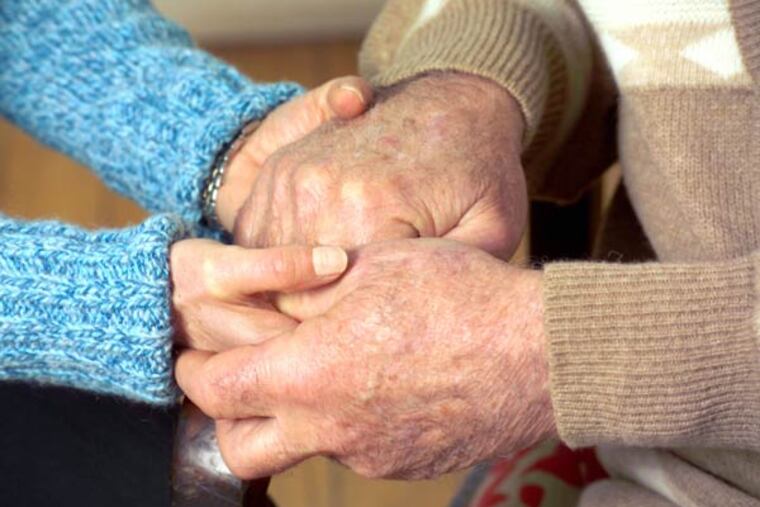Suit aims to end ban on elder-care work after felony
Nearly 20 years ago, drug addiction derailed the life of an experienced licensed practical nurse, now 60 and living drug-free in Philadelphia's Mayfair section.

Nearly 20 years ago, drug addiction derailed the life of an experienced licensed practical nurse, now 60 and living drug-free in Philadelphia's Mayfair section.
"I thank the police department for likely saving my life the night they arrested me," she wrote in legal papers. "During my time in prison, I decided I was done with drugs."
What derails her now is a 1998 felony conviction stemming from that night. She can't legally get a job in her field.
Anyone with a felony conviction, no matter what it was for or how long ago it occurred, is precluded under Pennsylvania's Older Adult Protective Services Act from working in nursing homes, home health care, or residential facilities for the mentally ill or mentally retarded.
That's why late last month the woman - who asked not to be identified for fear of losing her job - joined a lawsuit in Commonwealth Court against the state and three of its departments, seeking to have the law declared unconstitutional.
"This case is currently in litigation, but the administration understands the concerns of individuals who may have made mistakes in the past," Jeffrey Sheridan, spokesman for Gov. Wolf, said in an e-mail Friday, adding that the administration thinks a "balance can be achieved" between protecting vulnerable adults and employing qualified people who have criminal records.
Particularly frustrating to Community Legal Services lawyer Janet F. Ginzberg, one of several attorneys representing the plaintiffs, is that the lifetime employment ban in the Protective Services Act already had been declared unconstitutional in a similar case filed by her office and decided by the Pennsylvania Supreme Court in 2003.
Ginzberg said the lawyers figured that "if we won, the legislature would change the law and make it constitutional. We won, but it didn't happen."
In that case and this, lawyers drew on research showing that the risk of recidivism recedes over time, and that at a certain point, an earlier conviction no longer has "any material value in predicting future criminal conduct."
Ginzberg estimates there are 200,000 Pennsylvanians with clean records following 10-year-old felony convictions who are prohibited from working in nursing or group homes.
Resources for Human Development Inc. (RHD), a Philadelphia nonprofit that provides residential programming to individuals with mental illness, mental retardation, and chemical dependency, also is a plaintiff.
The law "was intended to protect vulnerable adults. That's a goal that we all share," said Dennis Roberts, an RHD executive. "But it misses the mark."
Roberts said RHD employs about 1,000 people in Pennsylvania, and turnover is high. Finding people who can tolerate the work is a challenge.
"What we're looking for is the opportunity to review the situations and be able to utilize administrative discretion to make sure we're getting the best-qualified," he said.
One plaintiff, Tyrone Peake, works at RHD as a part-time recovery specialist, earning $11 an hour.
When Peake, now 52, was 18, according to his affidavit, "my friends decided to steal a car. I cannot drive and was not involved in stealing the car, but I did ride with them."
He received probation for a felony conviction of attempted theft. In December, he earned an associate's degree in behavioral health from Community College of Philadelphia.
Roberts said RHD would move Peake into a full-time position at higher pay if the law were different.
"I regret the youthful mistakes I made when I was 18 years old," Peake said, "but now . . . I am a completely different person."